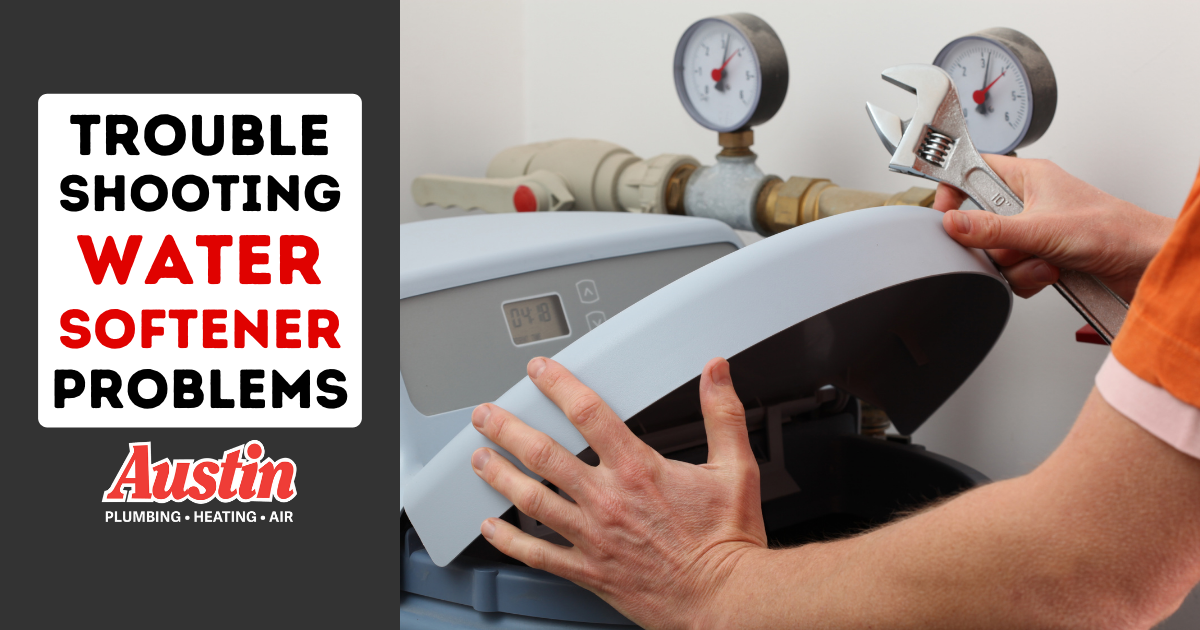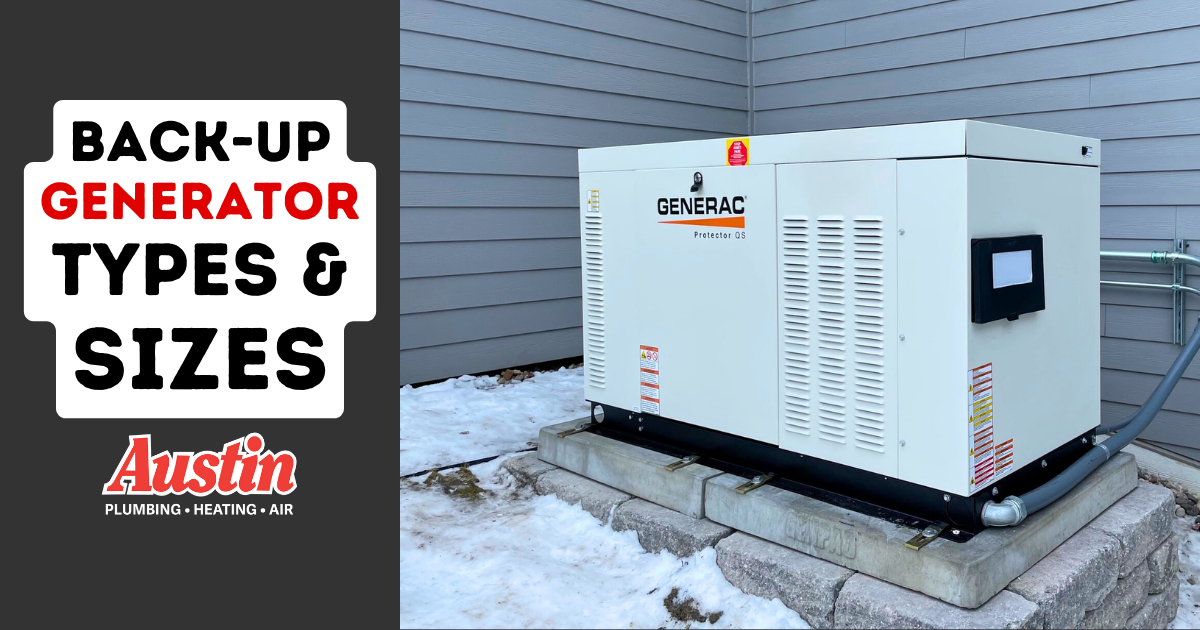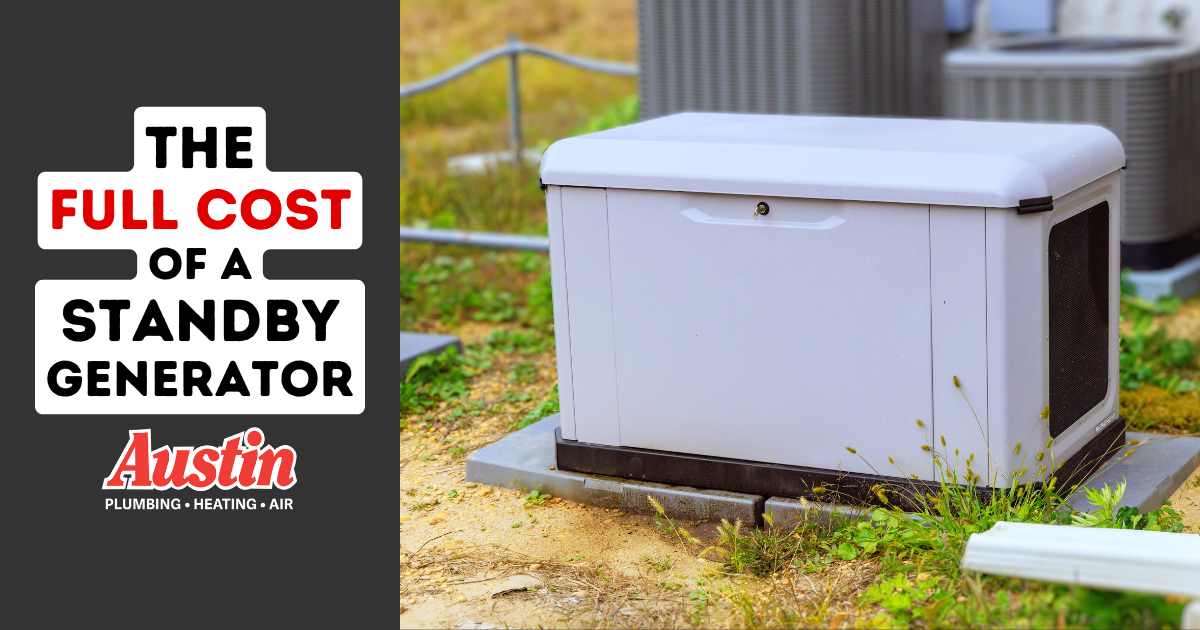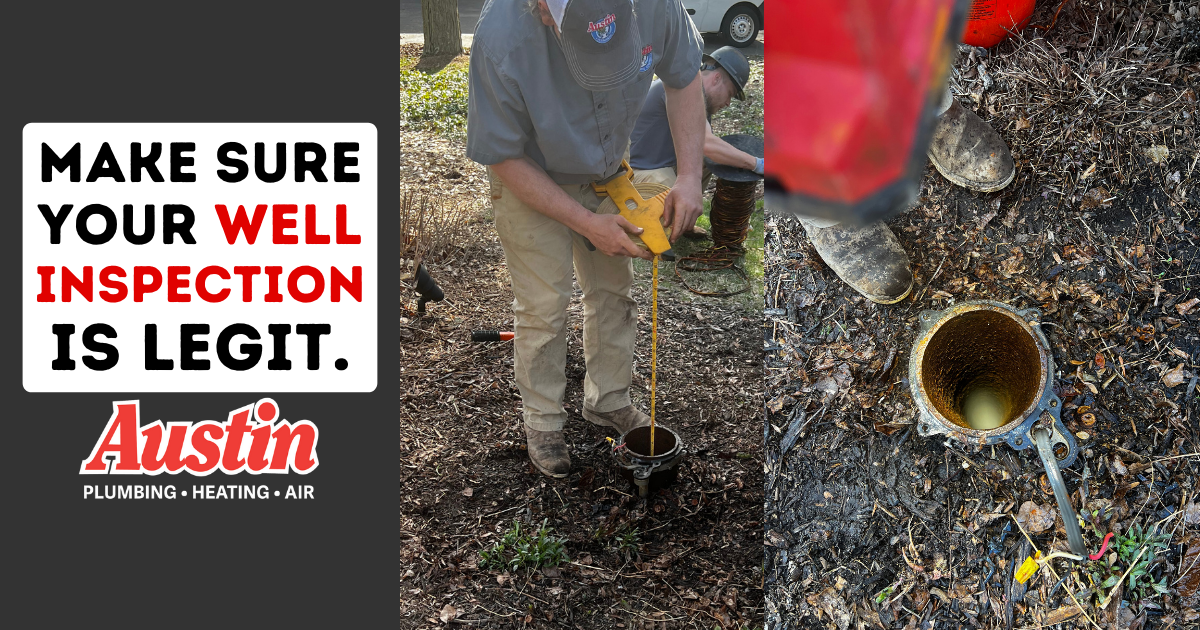When to Replace a Water Heater: 7 Signs Your Water Heater is Going Bad
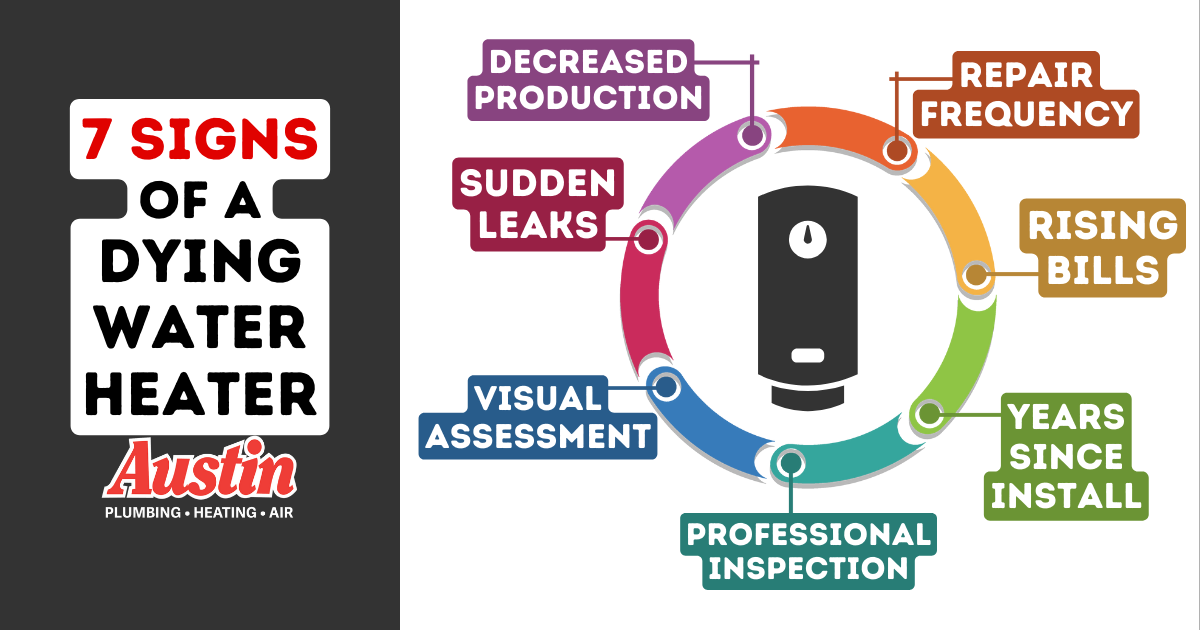
Water heater replacement shouldn’t sneak up on you! Our Master Tradesman shares seven key indicators that your water heater’s time is almost up.
Are you able to recognize the signs of water heater failure? Do you understand what factors weigh on a water heater over time? If you can confidently answer these questions, you won’t be surprised when the time comes for replacement. Let’s get after it.
1: Your Water Heater is Over 6-10 Years Old
The age of your water heater matters more than people realize, and water heaters don’t last as long as people think. These factors combined can lead to a lot of surprise water heater replacement calls.
As a general rule, a conventional water heater with a tank will have an average lifespan of 8 to 10 years. They can even live up to 12 with a mixture of attentive maintenance and sheer good luck. However, serious dysfunction only becomes harder to avoid past the 6-year mark.
If your water heater is getting on in years, you should be ready for the possibility of a final breakdown. It’s wiser not to wait for this to happen before calling for a replacement or upgrade, because that just lands you without hot water in the interim.
2: You Keep Paying for Repair After Repair, but the Water Heater Just Keeps Falling Apart
If you find yourself repeatedly calling for repairs while observing a continued decline in your water heater’s performance, you might just be prolonging the inevitable. This is especially likely to be true if your water heater is also fairly old already.
When you reach this point, starting fresh with a new water heater will usually be more cost effective than continuing to pour money into one that’s dying.
Pro-tip: Any single repair costing over $450 on a water heater over five years old should be a clear sign that it’s time to ask your plumber about buying a new one.
3: Judge Your Water Heater by the Way It Looks!
Rust and corrosion aren’t just aesthetic issues for water heaters. If it looks rust-stained and corroded, it is probably just as bad as it looks. And that poses an issue for the safety of your water, as well.
This is also an issue that will only worsen over time as corrosion continues to weaken the tank of your water heater. And when the tank goes, it’s lights-out for the appliance.
4: Leaky Water Heaters Can Never Be Trusted
Notice leaking around your water heater? Don’t ignore it. What starts out as a “small leak” will get bigger, eventually causing mold growth and even property damage.
We’ve written a comprehensive guide to troubleshooting water heater leaks, but if the situation is dire, take a look at our emergency guide instead.
If you’re not able to resolve the issue yourself, or if you ascertain that the leak is coming from the water heater tank, it’s extremely important that you call a professional.
5: You’re Spending More Than $50/Month on Hot Water
As water heaters age, they tend to become less energy-efficient. If you’ve noticed a significant increase in your energy bills without any other plausible explanation, and your water heater is 6-10 years old or older, you may have found the cause.
If this is you, the next time you go for a replacement, consider a water heater upgrade. High-efficiency options, such as heat-pump water heaters, can provide better energy utilization and lower operating costs. Tankless water heaters are even better, since they don’t suffer the same vulnerability to fatal leaks.
6: You Have to Plan Carefully to Avoid Running Out of Hot Water
Insufficient hot water or frequent fluctuations in temperature can and should be frustrating to anyone paying for accessible hot water. If your water heater is consistently failing to meet your household’s hot water demands, it may be time for a replacement—and not necessarily a like-for-like replacement.
This is another case where upgrading to a tankless water heater is pretty much guaranteed to offer improved performance. After all, the bare minimum performance required from any water heater should be to heat your water consistently. If it can’t do that, why not replace it with one that can? Plus, a tankless water heater will also be able to do it faster than a tank heater can.
7: When Your Plumber Says So
When in doubt, it’s always best to consult a professional plumber who specializes in water heater installations. Get a real water-heater whiz from Austin Plumbing, Heating & Air to assess your current system, consider your specific needs, and recommend the most suitable replacement option for your home.
And don’t worry—if a water heater can be saved, we’ll save it. Whether you need a replacement or a simple repair, let us take care of you! Click here to book online in real time.


